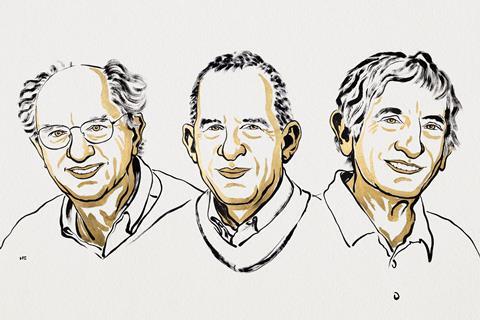
Three California-based scientists have been awarded the Nobel prize in physics for their observations of quantum mechanical tunnelling on the macroscopic scale. The discovery by John Clarke, Michel Devoret and John Martinis provided some of the fundamental insights on which modern quantum engineering and efforts to build quantum computers rely.
‘It is wonderful to be able to celebrate the way that century-old quantum mechanics continually offers new surprises,’ said Olle Eriksson, chair of the Nobel Committee for Physics. ‘It is also enormously useful, as quantum mechanics is the foundation of all digital technology.’
The research at the heart of this year’s prize was conducted in Clarke’s lab at the University of California, Berkeley, in the mid-1980s – at that time, Devoret was a postdoc in the group, while Martinis was a PhD student. Together, the trio designed experiments involving electric circuits based on superconductors.
In particular, they sought to measure phenomena occurring across a Josephson junction – where two superconducting components are separated by a layer of non-conducting material. The team observed a tunnelling effect where a current was able to cross this gap. They then used microwaves to analyse how the system’s behaviour changed in response to specific amounts of energy.
While quantum effects based on individual particles had previously been studied, Clarke, Devoret and Martinis’ findings were unique in that they revealed a quantum effect that is macroscopic – based on many particles working in unison.
In the years since the Berkeley team’s experiments, researchers have taken the concept further, developing ways to control the effect seen in the superconducting circuit. One particular application is in qubits that could form the basis of future quantum computers.
According to the Nobel committee, the discovery ‘has provided opportunities for developing the next generation of quantum technology, including quantum cryptography, quantum computers and quantum sensors’.
Speaking at a press conference shortly after the prize was announced, Clarke described winning the Nobel as ‘the surprise of my life’. ‘I’m completely stunned,’ he added. ‘It had never occurred to me in any way that this might be the basis of a Nobel prize.’
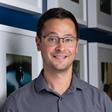



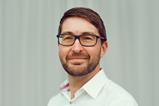

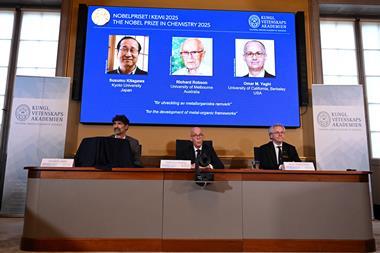


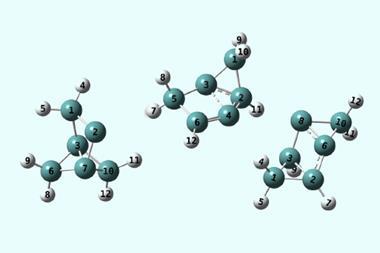
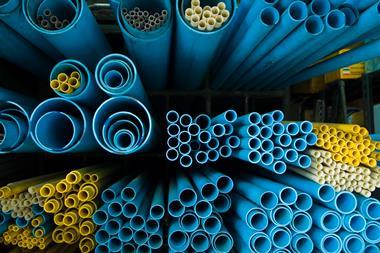






No comments yet